- Jonathan Sacks - Phil Saviano - Philip Schaff - Donald W Shriver - Robert Schuller - Richard Sibbes - Charles Simeon - AB Simpson - Charles Simpson - Aksel Smith - Charles Solomon - Ichabod Spencer -
==JONATHAN SACKS=================
Jonathan Henry Sacks, Baron Sacks (8 March 1948 – 7 November 2020) was an English Orthodox rabbi, philosopher, theologian, and author. Sacks served as the Chief Rabbi of the United Hebrew Congregations of the Commonwealth from 1991 to 2013. As the spiritual head of the United Synagogue, the largest synagogue body in the United Kingdom, he was the Chief Rabbi of those Orthodox synagogues but was not recognized as the religious authority for the Haredi Union of Orthodox Hebrew Congregations or for the progressive movements such as Masorti, Reform, and Liberal Judaism. As Chief Rabbi, he formally carried the title of Av Beit Din (head) of the London Beth Din. At the time of his death, he was the Emeritus Chief Rabbi.
May 23, 2023: Jewish Insider : Rabbi Sacks Legacy launches new Shavuot guides based on his teachings
As Jews around the world prepare to hold a Tikkun Leil Shavuot, an all-night study session for this week’s Shavuot holiday, they will have two new resources to consider this year based on the teachings of the late British Chief Rabbi Jonathan Sacks.
As Jews around the world prepare to hold a Tikkun Leil Shavuot, an all-night study session for this week’s Shavuot holiday, they will have two new resources to consider this year based on the teachings of the late British Chief Rabbi Jonathan Sacks.
Sept 9, 2021: Jewish Journal: Repentance is Re-Creation
Rabbi Jonathan Sacks pointed out that the rationale for the recitation of Kol Nidrei, a legal formula recited immediately before Yom Kippur begins, allowing the revocation of past and future oaths, is because it is by means of such a revocation of an oath that God Himself “repented” of His decision to destroy Israel after the sin of the golden calf, (Exod. R. 43:4, discussing Exod. 32:11).
Aug 15, 2015: Religion & Ethics: Evangelicals and LGBT; Rabbi Jonathan Sacks; Our Lady of Guadalupe Basilica
Growing social acceptance of same-sex marriage and other LGBT issues poses new challenges for evangelicals; Britain’s former chief rabbi leads a global effort against religious extremism and violence; an ancient vision in Mexico of the Virgin Mary inspires millions of religious pilgrims.
Rabbi Jonathan Sacks pointed out that the rationale for the recitation of Kol Nidrei, a legal formula recited immediately before Yom Kippur begins, allowing the revocation of past and future oaths, is because it is by means of such a revocation of an oath that God Himself “repented” of His decision to destroy Israel after the sin of the golden calf, (Exod. R. 43:4, discussing Exod. 32:11).
Aug 15, 2015: Religion & Ethics: Evangelicals and LGBT; Rabbi Jonathan Sacks; Our Lady of Guadalupe Basilica
Growing social acceptance of same-sex marriage and other LGBT issues poses new challenges for evangelicals; Britain’s former chief rabbi leads a global effort against religious extremism and violence; an ancient vision in Mexico of the Virgin Mary inspires millions of religious pilgrims.
Mar 20, 2015: Jonathan Sacks: Israel Unseen: Jonathan Sacks – Why Do We Sacrifice? Vayikra
April 14, 2015: Jonathan Sacks: Israel Seen: Jonathan Sacks – The Second Tithe and the Making of a Strong Society
Sept 27, 2014: Salon: Jonathan Sacks on Richard Dawkins: “New atheists lack a sense of humor”
Noted philosopher tells Salon atheism deserves better than new atheists, and how science and religion can get along
Sept 27, 2014: Salon: Jonathan Sacks on Richard Dawkins: “New atheists lack a sense of humor”
Noted philosopher tells Salon atheism deserves better than new atheists, and how science and religion can get along
==phil savano==================
Dec 30, 2021: Religion News: Observers, detractors and preachers of religion who died in 2021
Phil Saviano. The clergy sex abuse survivor was a whistleblower who played a prominent role in bringing to light sexual abuse by U.S. Roman Catholic priests.
Saviano died Nov. 28 at 69.
His story was featured in “Spotlight,” the 2015 film that depicted the investigation by The Boston Globe of a cover-up by scores of priests who had molested children. In the wake of the scandal, Cardinal Bernard Law, the prelate in Boston, resigned and the church made settlements with hundreds of victims. “My gift to the world was not being afraid to speak out,” Saviano told The Associated Press in mid-November.
Though movie watchers may have learned relatively recently of Saviano, who is pictured on his website wearing a “Recovering Catholic” T-shirt, he broke his silence in 1992 and described how he was sexually assaulted by his confessor and priest, David Holley of Worcester, Massachusetts. Holley, who died in prison in New Mexico in 2008, received a 275-year sentence for molesting eight boys.
According to Saviano’s website, after winning a settlement that did not restrict him from speaking freely, he established the New England chapter of Survivors Network of those Abused by Priests.
Saviano also expanded SNAP’s website, which became a communication tool for survivors and reporters, and he served on the organization’s board.
Phil Saviano. The clergy sex abuse survivor was a whistleblower who played a prominent role in bringing to light sexual abuse by U.S. Roman Catholic priests.
Saviano died Nov. 28 at 69.
His story was featured in “Spotlight,” the 2015 film that depicted the investigation by The Boston Globe of a cover-up by scores of priests who had molested children. In the wake of the scandal, Cardinal Bernard Law, the prelate in Boston, resigned and the church made settlements with hundreds of victims. “My gift to the world was not being afraid to speak out,” Saviano told The Associated Press in mid-November.
Though movie watchers may have learned relatively recently of Saviano, who is pictured on his website wearing a “Recovering Catholic” T-shirt, he broke his silence in 1992 and described how he was sexually assaulted by his confessor and priest, David Holley of Worcester, Massachusetts. Holley, who died in prison in New Mexico in 2008, received a 275-year sentence for molesting eight boys.
According to Saviano’s website, after winning a settlement that did not restrict him from speaking freely, he established the New England chapter of Survivors Network of those Abused by Priests.
Saviano also expanded SNAP’s website, which became a communication tool for survivors and reporters, and he served on the organization’s board.
==philip schaff=================
Philip Schaff (January 1, 1819 – October 20, 1893) was a Swiss-born, German educated Protestant
theologian and ecclesiastical historian, who spent most of his adult life living and teaching in the United States. Schaff was born in Chur, Switzerland, and educated at the gymnasium of Stuttgart. At the universities of Tübingen, Halle and Berlin, he was successively influenced by Ferdinand Christian Baur and Schmid, by Friedrich August Tholuck and Julius Müller, by David Strauss and, above all, Johann August Wilhelm Neander. At Berlin in 1841 he took the degree of Bachelor of Divinity and passed examinations for a professorship. He then traveled through Italy and Sicily as tutor to Baron Krischer. In 1842, he was Privatdozent in the University of Berlin, where he lectured on exegesis and ecclesiastical history. In 1843, he was called to become Professor of Church History and Biblical Literature in the German Reformed Theological Seminary of Mercersburg, Pennsylvania, then the only seminary of that church in America.
theologian and ecclesiastical historian, who spent most of his adult life living and teaching in the United States. Schaff was born in Chur, Switzerland, and educated at the gymnasium of Stuttgart. At the universities of Tübingen, Halle and Berlin, he was successively influenced by Ferdinand Christian Baur and Schmid, by Friedrich August Tholuck and Julius Müller, by David Strauss and, above all, Johann August Wilhelm Neander. At Berlin in 1841 he took the degree of Bachelor of Divinity and passed examinations for a professorship. He then traveled through Italy and Sicily as tutor to Baron Krischer. In 1842, he was Privatdozent in the University of Berlin, where he lectured on exegesis and ecclesiastical history. In 1843, he was called to become Professor of Church History and Biblical Literature in the German Reformed Theological Seminary of Mercersburg, Pennsylvania, then the only seminary of that church in America.
May 1, 2023: Gospel Coalition: Westminster Confession of Faith: Faithful, Pastoral, Global, and Enduring
Philip Schaff also considered the Confession’s teaching on Scripture to be the definitive Protestant counterpart to Roman Catholic teaching on the subject: “No other Protestant symbol has such a clear, judicious, concise, and exhaustive statement of this fundamental article of Protestantism.”
Philip Schaff also considered the Confession’s teaching on Scripture to be the definitive Protestant counterpart to Roman Catholic teaching on the subject: “No other Protestant symbol has such a clear, judicious, concise, and exhaustive statement of this fundamental article of Protestantism.”
May 25, 2023: University of Chicago: Connection and Celebration at the World's Parliament of Religions
Philip Schaff, a Protestant leader who had worked years for unification efforts within Christianity, argued that the Parliament would further his vision of Christian ecumenism based on “ethical unity” and “Christian freedom” by opposing a “spirit of pride, selfishness and narrowness.” Prince Serge Wolkonsky from Russia urged in his address, “Universal Brotherhood,” that attendees embrace an already existing human connection. He stated: “Human brotherhood is not a club where membership is needed to enjoy the privileges. Not by instituting societies or associations shall we inspire feelings of brotherhood, but in breaking the exclusiveness of those which exist.” Kaufman Kohler, a prominent leader of Reform Judaism, emphasized human unity, the divine image, and the “bonds of human brotherhood” in his talk. The repeated claims about the fatherhood of God and the brotherhood of humanity have seldom been noted, but they are examples of multiple religious leaders (even beyond the Jewish and Christian traditions) who sought to expand the circle of human connection beyond blood ties, national boundaries, and even inherited religious traditions. At the height of racism in the US and Western colonialism, the Parliament was one attempt to mitigate human division and the sectarian passions nurtured and released by religious certainty.
Philip Schaff, a Protestant leader who had worked years for unification efforts within Christianity, argued that the Parliament would further his vision of Christian ecumenism based on “ethical unity” and “Christian freedom” by opposing a “spirit of pride, selfishness and narrowness.” Prince Serge Wolkonsky from Russia urged in his address, “Universal Brotherhood,” that attendees embrace an already existing human connection. He stated: “Human brotherhood is not a club where membership is needed to enjoy the privileges. Not by instituting societies or associations shall we inspire feelings of brotherhood, but in breaking the exclusiveness of those which exist.” Kaufman Kohler, a prominent leader of Reform Judaism, emphasized human unity, the divine image, and the “bonds of human brotherhood” in his talk. The repeated claims about the fatherhood of God and the brotherhood of humanity have seldom been noted, but they are examples of multiple religious leaders (even beyond the Jewish and Christian traditions) who sought to expand the circle of human connection beyond blood ties, national boundaries, and even inherited religious traditions. At the height of racism in the US and Western colonialism, the Parliament was one attempt to mitigate human division and the sectarian passions nurtured and released by religious certainty.
Philip Schaff, one of the greatest scholars of the past generation, in his splendid volume entitled "The Person of Christ," recounting the above facts, points out that another striking thing concerning this unique person--that of sinlessness. He ably argues, that the sinlessness of Jesus Christ is, in itself, a stronger argument for his deity, than were the miracles of which Christ performed. Jesus, himself, pointed to his miracles as answer to the question of his identity, when he told the disciples of John the Baptist: "Go and shew John again those things which ye do and hear and see: The blind receive their sight, and the lame walk, the lepers are cleansed, and the deaf hear, the dead are raised up, and the poor have the gospel preached to them." (Matt 11:4-5).
Since Christ miracles were considered as credentials of his deity, by Christ himself, they must not be checked off as evidences. Miracles appear so easy to Christ, as if they dropped from his sinlessness constituted even greater evidence. Therre were others who performed miracles, but there was none others of whom sinlessness could be truthfully predicated. He only could stand before his enemies and challengingly ask, "Which of you convicts me of sin?" (John 8:46). When submitted to this supreme acid test, he was sinless, putting him into a class entirely alone.
Since Christ miracles were considered as credentials of his deity, by Christ himself, they must not be checked off as evidences. Miracles appear so easy to Christ, as if they dropped from his sinlessness constituted even greater evidence. Therre were others who performed miracles, but there was none others of whom sinlessness could be truthfully predicated. He only could stand before his enemies and challengingly ask, "Which of you convicts me of sin?" (John 8:46). When submitted to this supreme acid test, he was sinless, putting him into a class entirely alone.
==donald w Shriver jr========
Dec 30, 2021: Religion News: Observers, detractors and preachers of religion who died in 2021
The Rev. Donald W. Shriver Jr. The Rev. Donald W. Shriver Jr. died July 28, 2021. Photo courtesy of Union Theological Seminary
The Presbyterian minister and Christian ethicist wrote widely to encourage white Americans to face and repent of their racist past.
Shriver died July 28 at 93.
The president of New York’s Union Theological Seminary from 1975 to 1991, he hired Black clergy and scholars such as Cornel West, James Forbes and James Melvin Washington as well as feminist theologians such as Phyllis Trible and Beverly Wildung Harrison.
His most celebrated 2005 book, “Honest Patriots: Loving a Country Enough to Remember its Misdeeds,” compared the work of public repentance in South Africa and Germany with that in the U.S.
American culture will never be truly reformed, Shriver wrote, “unless the past we ought to mourn is mourned, in fact, in public, and in the context of concrete gestures and measures that put the past behind us in our very act of confronting it.”
The Rev. Donald W. Shriver Jr. The Rev. Donald W. Shriver Jr. died July 28, 2021. Photo courtesy of Union Theological Seminary
The Presbyterian minister and Christian ethicist wrote widely to encourage white Americans to face and repent of their racist past.
Shriver died July 28 at 93.
The president of New York’s Union Theological Seminary from 1975 to 1991, he hired Black clergy and scholars such as Cornel West, James Forbes and James Melvin Washington as well as feminist theologians such as Phyllis Trible and Beverly Wildung Harrison.
His most celebrated 2005 book, “Honest Patriots: Loving a Country Enough to Remember its Misdeeds,” compared the work of public repentance in South Africa and Germany with that in the U.S.
American culture will never be truly reformed, Shriver wrote, “unless the past we ought to mourn is mourned, in fact, in public, and in the context of concrete gestures and measures that put the past behind us in our very act of confronting it.”
==Robert H Schuller===========
Jan 15, 2023: CBN: Rev. Robert Schuller's Wife Dies at 84
Arvella Schuller, wife of Robert H. Schuller, has died at the age of 84.
Carol Schuller Milner said her mother passed away unexpectedly and peacefully Tuesday.
Arvella Schuller, wife of Robert H. Schuller, has died at the age of 84.
Carol Schuller Milner said her mother passed away unexpectedly and peacefully Tuesday.
Sept 27, 2021: Mail & Guardian: Happy Jele has given ‘The Ghost’ much to smile about
“That was music to my ears. And looking around his office, I saw a lot of framed rugby jerseys. I knew they were from players grateful to have been helped and that gave me hope. I did everything he instructed me to do during the rehab programme after the surgery. I also read some positive books such as Robert H Schuller’s Tough Times Never Last But Tough People Do and Joel Osteen’s It’s Your Time, which helped make me strong mentally.”
“That was music to my ears. And looking around his office, I saw a lot of framed rugby jerseys. I knew they were from players grateful to have been helped and that gave me hope. I did everything he instructed me to do during the rehab programme after the surgery. I also read some positive books such as Robert H Schuller’s Tough Times Never Last But Tough People Do and Joel Osteen’s It’s Your Time, which helped make me strong mentally.”
July 13, 2020: Baptist News Global: California and the making of American evangelicalism
Robert “Fighting Bob” Shuler — not to be confused with Robert Schuller who later founded the Crystal Cathedral — led the charge for evangelicals to break ranks with the Democratic party. An American evangelist and radio broadcaster, Shuler had been a lifelong Democrat. He possessed a flair for being a combative and accusatory radio personality. After the Federal Radio Commission revoked his broadcasting license for “numerous abuses,” Shuler made a strong but ultimately unsuccessful run for the U.S. Senate on the Prohibition ticket. His popularity and political evolution, however, helped open the opportunity for a new alliance between evangelicalism and corporate business.
Robert “Fighting Bob” Shuler — not to be confused with Robert Schuller who later founded the Crystal Cathedral — led the charge for evangelicals to break ranks with the Democratic party. An American evangelist and radio broadcaster, Shuler had been a lifelong Democrat. He possessed a flair for being a combative and accusatory radio personality. After the Federal Radio Commission revoked his broadcasting license for “numerous abuses,” Shuler made a strong but ultimately unsuccessful run for the U.S. Senate on the Prohibition ticket. His popularity and political evolution, however, helped open the opportunity for a new alliance between evangelicalism and corporate business.
"I was called to start a mission, not a church....you don't try to preach....what is sin and what isn't sin. A mission is a place where you ask nonbelievers to come and find faith and hope and feel love."
--Robert Schuller
--Robert Schuller
--richard sibbes---------------------------
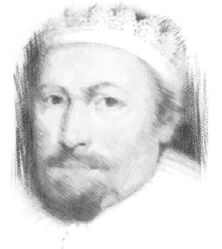 Richard Sibbes
Richard Sibbes
In Matthew it is said that he shall 'send forth judgment unto victory' (Matt. 12:20). The word 'send forth' has a stronger sense in the original: to send forth with force; showing that, where his government is in truth, it will be opposed, until he gets the upper hand. Nothing is so opposed as Christ and his government are, both within us and outside us; and within us most in our conversion. Though corruption does not prevail so far as to make void the powerful work of grace, yet there is not only a possibility of opposing, but a proneness to oppose, and not only a proneness, but an actual withstanding of the working of Christ's Spirit, and that in every action. Yet there is no prevailing resistance so far as to make void the work of grace, but corruption in the issue yields to grace. -Richard Sibbes
==charles simeon====
Charles Simeon (24 September 1759 – 13 November 1836) was an English evangelical Anglican cleric. He graduated B.A. in 1783 and, in the same year, was ordained a priest of the Church of England. He began his ministry as deputy to Christopher Atkinson (1754–1795) at St Edward King and Martyr, Cambridge. Renowned as a preacher, Simeon helped found the Church Missionary Society (1797) and assisted the newly founded (1804) British and Foreign Bible Society. In his Horae Homileticae, 17 vol. (1819–28; “Homiletic Offices”), he annotated the entire Bible for sermon material. In order to ensure the continuity of Evangelical teaching, he established (1816) the Simeon Trust to purchase the right to appoint clergymen to livings.
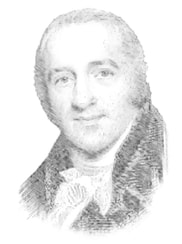 Charles Simeon
Charles Simeon
"Be not afraid, neither be dismayed; for the Lord your God is with you wherever you go," said the Lord to Joshua; and He says the same to us, "Lo, I am with you always, even to the end of the world! Matthew 28:20." Now, imagine a soldier with his commander and his prince always at his side; would he not be stirred up by that to acts of valor, which, in the absence of such a stimulus, he would be unable to put forth? Know, then, that your God is ever with you; and with you, not only as a Witness of your actions, but as a Helper, to strengthen you, to uphold you, to combat with you. What encouragement can you desire beyond this? Hear his own words, addressed to every soldier in his army, "Fear not, for I am with you; be not dismayed, for I am your God; I will strengthen you; yes, I will help you; yes, I will uphold you with the right hand of my righteousness! Isaiah 41:10."
What does it matter, then, how many there may be against you? If they were as numerous as the sands upon the sea-shore, you may boldly say, "There are more with you than with them." In fact, "If God is for you, who can be against you?" They may assault you, and boast of their triumphs; but they can do nothing, but in accordance with his will, and in subserviency to his designs. --Charles Simeon
What does it matter, then, how many there may be against you? If they were as numerous as the sands upon the sea-shore, you may boldly say, "There are more with you than with them." In fact, "If God is for you, who can be against you?" They may assault you, and boast of their triumphs; but they can do nothing, but in accordance with his will, and in subserviency to his designs. --Charles Simeon
Dec 24, 2022: The Critic: What church for what England?
The chapter on the evangelical revival of the late eighteenth and early nineteenth centuries is fascinating in its examination of the success in organisational terms of the movement. Charles Simeon’s policy of buying up patronage of parishes to ensure an evangelical succession is partly responsible for the maintenance of evangelicalism to this day. The nineteenth century is the time of missionary endeavours, but Morris is unable to follow these in any detail — only gesture towards the importance of empire and the Anglican communion, since these lie beyond his remit. Perhaps, this will be his next project, although so great is the acrimony between Anglican Churches of the north and south, that it will be a gloomy volume. One note of hope in the Victorian period is the evidence of a strong and often successful response by the Church to industrialism and urbanization in the form of church building and pastoral provision, even if its reach to the working-class was patchy.
The chapter on the evangelical revival of the late eighteenth and early nineteenth centuries is fascinating in its examination of the success in organisational terms of the movement. Charles Simeon’s policy of buying up patronage of parishes to ensure an evangelical succession is partly responsible for the maintenance of evangelicalism to this day. The nineteenth century is the time of missionary endeavours, but Morris is unable to follow these in any detail — only gesture towards the importance of empire and the Anglican communion, since these lie beyond his remit. Perhaps, this will be his next project, although so great is the acrimony between Anglican Churches of the north and south, that it will be a gloomy volume. One note of hope in the Victorian period is the evidence of a strong and often successful response by the Church to industrialism and urbanization in the form of church building and pastoral provision, even if its reach to the working-class was patchy.
April 15, 1989: Desiring God : Brothers, We Must Not Mind a Little Suffering
Meditations on the Life of Charles Simeon 1989 Bethlehem Conference for Pastors
Meditations on the Life of Charles Simeon 1989 Bethlehem Conference for Pastors
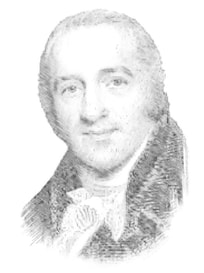 Charles Simeon
Charles Simeon
My dear brother, we must not mind a little suffering for Christ’s sake. When I am getting through a hedge, if my head and shoulders are safely through, I can bear the pricking of my legs. Let us rejoice in the remembrance that our holy Head has surmounted all His suffering and triumphed over death. Let us follow Him patiently; we shall soon be partakers of His victory” (H.C.G. Moule, Charles Simeon, London: InterVarsity, 1948, 155f.).
My dear brother, we must not mind a little suffering for Christ’s sake. When I am getting through a hedge, if my head and shoulders are safely through, I can bear the pricking of my legs. Let us rejoice in the remembrance that our holy Head has surmounted all His suffering and triumphed over death. Let us follow Him patiently; we shall soon be partakers of His victory” (H.C.G. Moule, Charles Simeon, London: InterVarsity, 1948, 155f.).
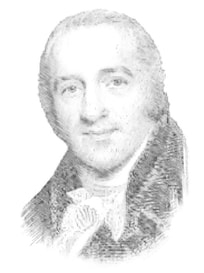 Charles Simeon
Charles Simeon
“I love the simplicity of the Scriptures, and I wish to receive and inculcate every truth precisely in the way, and to the extent, that it is set forth in the sacred Volume. Were this the habit of all divines, there would soon be an end to most of the controversies that have agitated and divided the Church of Christ. My endeavor is to bring out of Scripture what is there, and not to thrust in what I think might be there. I have a great jealousy on this head—never to speak more or less than I believe to be the mind of the Spirit in the passage I am expounding. I would run after nothing, and shun nothing. . . . The truth is not in the middle, and not in one extreme, but in both extremes. . . . I formerly read Aristotle, and liked him much. I have since read Paul, and caught somewhat of his strange notions, oscillating (not vacillating) from pole to pole. Sometimes I am a high Calvinist, at other times a low Arminian, so that if extremes will please you, I am your man. Only remember, it is not one extreme that we are to go to but both extremes.”
— Charles Simeon, quoted in H. C. G. Moule, Charles Simeon (London, 1956), pages 77-78.
— Charles Simeon, quoted in H. C. G. Moule, Charles Simeon (London, 1956), pages 77-78.
==ab simpson======
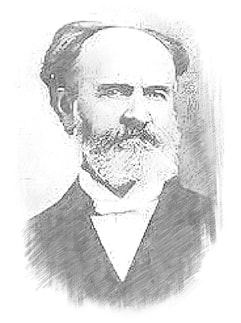 AB Simpson
AB Simpson
Prayer is the mighty force that will move missionary work. Pray ye therefore the Lord of the harvest, that he will send forth labourers into his harvest (Matthew 9:38). We are asking God to touch the hearts of men every day by the Holy Spirit, so that they shall be compelled to go abroad and preach the gospel. We are asking Him to awaken them at night with the solemn conviction that the heathen are perishing and that their blood will be upon their souls. God is answering that prayer by sending persons to us every day who feel that the king's business [requires] haste (1 Samuel 21:8). Beloved, pray, pray, pray. And as petitions rise to the heavens there will be a period of silence in heaven, and the coals of fire will be emptied out upon the earth, and the coming of the Lord will begin to draw nearer. Pray until the Lord of the harvest shall thrust forth laborers into His harvest. Send the coals of heavenly fire, From the altar of the skies; Fill our hearts with strong desire, Till our prayers like incense rise.
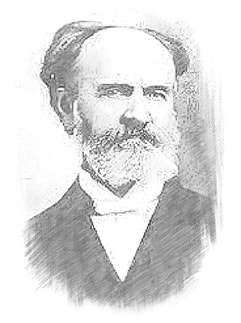 AB Simpson
AB Simpson
Faith is necessary in order to have acceptable and effectual prayer. This our Lord very distinctly states in this passage. He commands the disciples to have faith in God, and then adds, “When ye pray, believe that ye receive them.” But this is not the only place where this necessity is emphasized, for we are told in Hebrews that “without faith it is impossible to please him: for he that cometh to God must believe that he is, and that he is the rewarder of them that diligently seek him.” There must be a believing recognition of God’s personal existence and of His goodness and graciousness, and that He does hear and answer prayer.
So, again, in speaking of prayer for healing, it is declared that “the prayer of faith shall save the sick, and the Lord shall raise him up.” If we would understand what James means by the prayer of faith, we have only to turn to the first chapter and hear him say, “If any of you lack wisdom, let him ask of God, that giveth to all men liberally” (or rather, “of course”), “but let him ask in faith, nothing wavering. For he that wavereth is like a wave of the sea driven with the wind and tossed. For let not that man think that he shall receive anything of the Lord.” The language here is very emphatic. “Of course” God will give to all, but they must take by faith what God gives, or the giving is in vain. The man who wavers does not take, cannot receive. He is like that poor victim in the hospital who died in agony, with water held to his lips, but unable to swallow a single drop through the spasms which contracted his throat, arising from the most terrific of all human diseases. There are people to whom the Lord gives the Water of Life, but they will not drink it. There are people whose tables God has spread with the blessings of faith, but they do not partake of its bounties. There are prayers which God has answered, but we do not enjoy the answers. There are souls whom God has long ago forgiven, but they are in darkness and despair because they did not trust His pardon. Therefore, when the troubled and despairing father came to Him about his child, crying, “I spake to thy disciples that they should cast him out; and they could not . . . but if thou canst do any thing, have compassion on us, and help us, ” the Master simply answered, as He turned the whole question back upon the man, “If thou canst believe, all things are possible to him that believeth.”
It is perfectly right that God should require us to believe before He answers our prayers, because faith is the law of the New Testament and the gospel dispensation. The Apostle Paul speaks of two laws in the third chapter of Romans, the law of works and the law of faith. The former has been superseded, and the principle on which the whole gospel is based is the law of faith. “To him that worketh not, but believeth on him that justifieth the ungodly, his faith is counted for righteousness.” We have already suggested why this law has been adopted. No doubt in the light of eternity we shall find many reasons for it which we could not now fully apprehend, but it is enough to know that as it was through unbelief that men fell, so it is through faith that they must be restored. In a word, we must come back to the point from which we started in a wrong direction. When Bunyan’s pilgrim found that he had lost his roll on the Hill of Difficulty, he simply went back to the place where he had lost it and started on again. And so we must begin at the point of departure from God, by learning to trust Him. God is bound to act upon this principle if it be the law of this dispensation, and He cannot justly acknowledge our plea if we do not present it according to the prescribed rule. --AB Simpson
So, again, in speaking of prayer for healing, it is declared that “the prayer of faith shall save the sick, and the Lord shall raise him up.” If we would understand what James means by the prayer of faith, we have only to turn to the first chapter and hear him say, “If any of you lack wisdom, let him ask of God, that giveth to all men liberally” (or rather, “of course”), “but let him ask in faith, nothing wavering. For he that wavereth is like a wave of the sea driven with the wind and tossed. For let not that man think that he shall receive anything of the Lord.” The language here is very emphatic. “Of course” God will give to all, but they must take by faith what God gives, or the giving is in vain. The man who wavers does not take, cannot receive. He is like that poor victim in the hospital who died in agony, with water held to his lips, but unable to swallow a single drop through the spasms which contracted his throat, arising from the most terrific of all human diseases. There are people to whom the Lord gives the Water of Life, but they will not drink it. There are people whose tables God has spread with the blessings of faith, but they do not partake of its bounties. There are prayers which God has answered, but we do not enjoy the answers. There are souls whom God has long ago forgiven, but they are in darkness and despair because they did not trust His pardon. Therefore, when the troubled and despairing father came to Him about his child, crying, “I spake to thy disciples that they should cast him out; and they could not . . . but if thou canst do any thing, have compassion on us, and help us, ” the Master simply answered, as He turned the whole question back upon the man, “If thou canst believe, all things are possible to him that believeth.”
It is perfectly right that God should require us to believe before He answers our prayers, because faith is the law of the New Testament and the gospel dispensation. The Apostle Paul speaks of two laws in the third chapter of Romans, the law of works and the law of faith. The former has been superseded, and the principle on which the whole gospel is based is the law of faith. “To him that worketh not, but believeth on him that justifieth the ungodly, his faith is counted for righteousness.” We have already suggested why this law has been adopted. No doubt in the light of eternity we shall find many reasons for it which we could not now fully apprehend, but it is enough to know that as it was through unbelief that men fell, so it is through faith that they must be restored. In a word, we must come back to the point from which we started in a wrong direction. When Bunyan’s pilgrim found that he had lost his roll on the Hill of Difficulty, he simply went back to the place where he had lost it and started on again. And so we must begin at the point of departure from God, by learning to trust Him. God is bound to act upon this principle if it be the law of this dispensation, and He cannot justly acknowledge our plea if we do not present it according to the prescribed rule. --AB Simpson
==charles simpson======
Charles Simpson Obituary
Rev. Charles Vernon Simpson, a longtime resident of Mobile, Alabama, stepped into eternity with Jesus on February 14, 2024, after a brief illness. He was 86 years old. Born in New Orleans, Louisiana, Pastor Charles was the son of Rev. Vernon Simpson (deceased) and Genoa Schaubhut Simpson (deceased). He was ordained into Gospel Ministry in 1955 and graduated from William Carey College. He also attended New Orleans Baptist Theological Seminary. In 1957, Rev. Simpson became the Pastor of Bayview Heights Baptist Church in Mobile, where he remained until 1971. He married Carolyn Francis Dix in 1960, and they were married for more than 47 years, until her passing in 2008.
Charles Simpson was internationally recognized as a pioneer in what became known as the Charismatic Movement and traveled worldwide as a Bible Teacher, author, and church planter. He served on the Board of Directors for New Wine Magazine, One-to-One Magazine, Integrity Media, International Outreach Ministries, CSM Publishing, and other ministries. He was featured on his nationwide radio broadcast, "Challenge with Charles Simpson" and numerous television broadcasts. Charles Simpson is the author of many books including: Courageous Living; The Challenge to Care; Ants, Vines and Churches; A New Way to Live; Your Home or His; and Straight Answers to 21 Honest Questions about Prayer. He served as the Senior Editor of The Covenant and the Kingdom Bible study curriculum and contributed commentary for The Spirit-Filled Life Bible. Brother Charles received his honorary doctorate from the American Center for Theological Studies in 1998.
Among many churches he planted or founded are Covenant Church of Mobile, Alabama (1973), Christ Covenant Church in Houston, Texas (1992), and Faith Alive Church in New Braunfels, Texas (2016).
Pastor Charles is survived by his children Rev. Stephen Simpson (Susanne), Charlyn Simpson Mejia (Enrique), and Jonathan Simpson (Sarah), as well as nine grandchildren, three great-grandchildren, his sister-in-law, Mikki Simpson, two nieces, and three nephews. He was preceded in death by his wife, Carolyn, as well as his parents, sister, brother, niece, and in-laws. A private family graveside service will take place on Monday, February 19, with a public celebration of life to be announced.
Rev. Charles Vernon Simpson, a longtime resident of Mobile, Alabama, stepped into eternity with Jesus on February 14, 2024, after a brief illness. He was 86 years old. Born in New Orleans, Louisiana, Pastor Charles was the son of Rev. Vernon Simpson (deceased) and Genoa Schaubhut Simpson (deceased). He was ordained into Gospel Ministry in 1955 and graduated from William Carey College. He also attended New Orleans Baptist Theological Seminary. In 1957, Rev. Simpson became the Pastor of Bayview Heights Baptist Church in Mobile, where he remained until 1971. He married Carolyn Francis Dix in 1960, and they were married for more than 47 years, until her passing in 2008.
Charles Simpson was internationally recognized as a pioneer in what became known as the Charismatic Movement and traveled worldwide as a Bible Teacher, author, and church planter. He served on the Board of Directors for New Wine Magazine, One-to-One Magazine, Integrity Media, International Outreach Ministries, CSM Publishing, and other ministries. He was featured on his nationwide radio broadcast, "Challenge with Charles Simpson" and numerous television broadcasts. Charles Simpson is the author of many books including: Courageous Living; The Challenge to Care; Ants, Vines and Churches; A New Way to Live; Your Home or His; and Straight Answers to 21 Honest Questions about Prayer. He served as the Senior Editor of The Covenant and the Kingdom Bible study curriculum and contributed commentary for The Spirit-Filled Life Bible. Brother Charles received his honorary doctorate from the American Center for Theological Studies in 1998.
Among many churches he planted or founded are Covenant Church of Mobile, Alabama (1973), Christ Covenant Church in Houston, Texas (1992), and Faith Alive Church in New Braunfels, Texas (2016).
Pastor Charles is survived by his children Rev. Stephen Simpson (Susanne), Charlyn Simpson Mejia (Enrique), and Jonathan Simpson (Sarah), as well as nine grandchildren, three great-grandchildren, his sister-in-law, Mikki Simpson, two nieces, and three nephews. He was preceded in death by his wife, Carolyn, as well as his parents, sister, brother, niece, and in-laws. A private family graveside service will take place on Monday, February 19, with a public celebration of life to be announced.
Charles Simpson:
Six antidotes to insensitivity:
1)Fear of the Lord
2)True humility
3)Real repentance
4)Reproof
5)Discipline
6)Rest
Six antidotes to insensitivity:
1)Fear of the Lord
2)True humility
3)Real repentance
4)Reproof
5)Discipline
6)Rest
==aksel smith======
Whenever human reasoning says, “It is impossible!” faith says, “It is possible!” Faith is unreserved trust in God who loves us and who can do everything. His name is Wonderful, and He performs wonders. Though a mother might forget her own child, He cannot forget us. (Isaiah 49:15)
Without faith it is impossible to please God, but through faith we please Him, and we become His intimate friends whose prayers are answered and who receive help on the day of need. If He should tarry with answering our prayers when we want Him to act right away, we need to rest in the knowledge that He is perfect in wisdom, goodness, and love, and that He will act at the right time for our eternal benefit and that of our children in each single situation. That is the hope we are to believe in!
Laziness and indifference are foreign to faith. We are to fight in faith against everything that wants to hinder us from attaining to the hope we look forward to with joy. He answers our prayers according to the need and longing in our heart. If we believe, we will also see and experience God's glory. --Aksel Smith
Without faith it is impossible to please God, but through faith we please Him, and we become His intimate friends whose prayers are answered and who receive help on the day of need. If He should tarry with answering our prayers when we want Him to act right away, we need to rest in the knowledge that He is perfect in wisdom, goodness, and love, and that He will act at the right time for our eternal benefit and that of our children in each single situation. That is the hope we are to believe in!
Laziness and indifference are foreign to faith. We are to fight in faith against everything that wants to hinder us from attaining to the hope we look forward to with joy. He answers our prayers according to the need and longing in our heart. If we believe, we will also see and experience God's glory. --Aksel Smith
==charles solomon===========
The self centered Christian is abnormal in God's economy. When the Word speaks of a believer and his resources in Christ, it is assumed that Christ is central in the life. However, the Christian who has appropriated Christ as his life today is the exception rather than the rule. --Charles Solomon; The Ins and Outs of Rejection
==ichabod spencer===========
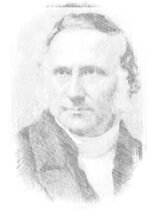 Ichabod Spencer
Ichabod Spencer
Thoughtlessness is the common origin of unconcern. We do a far better office for men when we lead them to think, than when we think for them. A man’s own thoughts are the most powerful of all preaching. The Holy Spirit operates very much by leading men to reflection—to employ their own mind. I should hesitate to interrupt the religious reflections of any man in the world, by the most important thing I could say to him. If I am sure he will think, I will consent to be still. But men are prone to be thoughtless, and we must speak to them to lead them to reflection.
– Ichabod Spencer; A Pastor’s Sketches
– Ichabod Spencer; A Pastor’s Sketches
==john shelby spong=============
John Shelby "Jack" Spong (June 16, 1931 – September 12, 2021) was an American bishop of the Episcopal Church, born in Charlotte, North Carolina. He served as the Bishop of Newark, New Jersey from 1979 to 2000. Spong was a liberal Christian theologian, religion commentator, and author, who called for a fundamental rethinking of Christian belief away from theism and traditional doctrines. He was known for his progressive and controversial views on Christianity, including his rejection of traditional Christian doctrines, his advocacy for LGBTQ rights, and his support for interfaith dialogue. Spong was the recipient of many awards, including 1999 Humanist of the Year. He was a contributor to the Living the Questions DVD program and was a guest on numerous national television broadcasts. Spong died on September 12, 2021, at his home in Richmond, Virginia, at the age of 90.
Dec 30, 2021: Religion News: Observers, detractors and preachers of religion who died in 2021
Bishop John Shelby Spong. The progressive theologian was the first to ordain an openly gay male priest in the Episcopal Church, in 1989. Spong died on Sept. 12 at age 90.
He eventually ordained three dozen LGBTQ clergy in the Episcopal Diocese of Newark, New Jersey, and made sure any diocesan church seeking a new priest interview at least one woman candidate.
The author of more than a dozen books, including “Living in Sin: A Bishop Rethinks Human Sexuality,” he would draw hundreds of people during his book tours. He defended his rejection of miracles and denial of Christian doctrines such as the resurrection of Jesus and the virgin birth.
“We’re space-age people,” he told Religion News Service in 2013. “All I’m saying is that the world the Christian church was born in is not the world we live in, and if you confine it to the world it was born in, Christianity will die, because that world is dying.”
Bishop John Shelby Spong. The progressive theologian was the first to ordain an openly gay male priest in the Episcopal Church, in 1989. Spong died on Sept. 12 at age 90.
He eventually ordained three dozen LGBTQ clergy in the Episcopal Diocese of Newark, New Jersey, and made sure any diocesan church seeking a new priest interview at least one woman candidate.
The author of more than a dozen books, including “Living in Sin: A Bishop Rethinks Human Sexuality,” he would draw hundreds of people during his book tours. He defended his rejection of miracles and denial of Christian doctrines such as the resurrection of Jesus and the virgin birth.
“We’re space-age people,” he told Religion News Service in 2013. “All I’m saying is that the world the Christian church was born in is not the world we live in, and if you confine it to the world it was born in, Christianity will die, because that world is dying.”
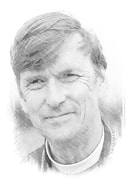 John Shelby Spong
John Shelby Spong
Apologetic explanations do not develop unless there is a reality that has to be explained and defended. Jesus was undeniably a figure of history. --John Shelby "Jack" Spong
Christianity is not about the divine becoming human so much as it is about the human becoming divine. That is a paradigm shift of the first order.
--John Shelby "Jack" Spong
Christianity is not about the divine becoming human so much as it is about the human becoming divine. That is a paradigm shift of the first order.
--John Shelby "Jack" Spong




